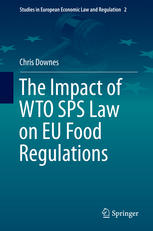

Most ebook files are in PDF format, so you can easily read them using various software such as Foxit Reader or directly on the Google Chrome browser.
Some ebook files are released by publishers in other formats such as .awz, .mobi, .epub, .fb2, etc. You may need to install specific software to read these formats on mobile/PC, such as Calibre.
Please read the tutorial at this link: https://ebookbell.com/faq
We offer FREE conversion to the popular formats you request; however, this may take some time. Therefore, right after payment, please email us, and we will try to provide the service as quickly as possible.
For some exceptional file formats or broken links (if any), please refrain from opening any disputes. Instead, email us first, and we will try to assist within a maximum of 6 hours.
EbookBell Team

0.0
0 reviewsThis book brings a fresh perspective on the emerging field of international food law with the first detailed analysis of the process and implications of domestic compliance with the World Trade Organisation (WTO) Sanitary and Phytosanitary (SPS) Agreement. It investigates the influence of WTO disciplines on the domestic policy-making process and examines the extent to which international trade law determines European Union (EU) food regulations.
Following controversial WTO rulings on genetically-modified foods and growth hormones in beef, awareness and criticism of global rules governing food has grown considerably. Yet the real impact of this international legal meta-framework on domestic regulations has remained obscure to practitioners and largely unexplored by legal commentators. This book examines the emergence of transnational governance practices set in motion by the SPS Agreement and their role in facilitating agricultural trade. In so doing, it complements and challenges conventional accounts of the SPS regime dominated by analysis of WTO disputes.
It reviews legal commentary of the SPS Agreement to understand why WTO rules are so commonly characterised as a significant threat to domestic food policy preferences. It then takes on these assumptions through an in-depth review of food policies and decision-making practices in the EU, revealing both the potential and limits of WTO law to shape EU policies. It finally examines two important venues for the generation of global food norms – the WTO SPS Committee and Codex Alimentarius – to evaluate the practice and significance of transnational governance in this domain. Through detailed case studies including novel foods, food additives, vitamin and mineral supplements and transparency and equivalence procedures, this book provides a richer account of compliance and exposes the subtle, but important influence of WTO obligations.